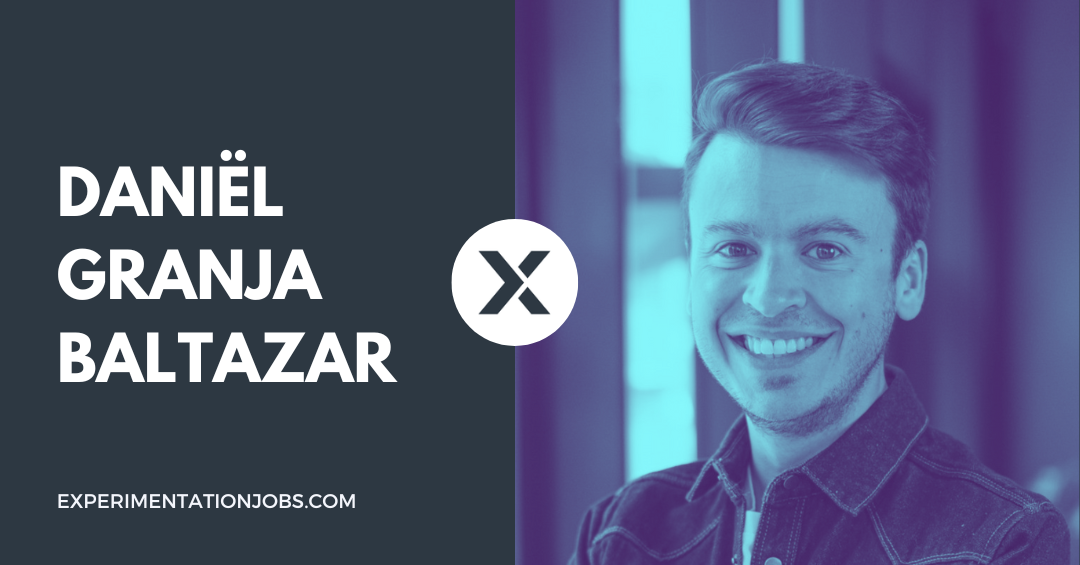The goal of this interview series is to inspire and help people to transition their career into a new or next experimentation related role. In this edition Arslan Nasir shares his journey. He is a CRO Developer and currently open to work.

…In the next 5–10 years, I see experimentation becoming more predictive and integrated with personalization strategies, while the fundamental principles of user-centric design and data-driven decision-making will remain constant.
Arslan Nasir
Please introduce yourself to our readers.
Hello, I’m Arslan, a CRO-focused Front-End Developer passionate about enhancing digital experiences through experimentation and optimization. I specialize in developing and deploying A/B tests, multivariate experiments, and custom solutions using technologies like HTML, CSS, JavaScript, and tools such as AB Tasty, VWO, and Adobe Target.
My work bridges creativity, technology, and analytics, making each project a blend of innovation and measurable impact. With experience managing multiple projects across various industries, I thrive in fast-paced, collaborative environments where innovation meets measurable results.
Beyond professional achievements, I’m a problem-solver at heart who enjoys collaboration and learning from peers in this ever-evolving industry. Let’s connect and share insights about CRO, experimentation, and the future of digital optimization!
What is your current experimentation role and what do you do?
I recently finished my contract working as a CRO Developer at Hookflash, where I specialize in implementing experimentation strategies for clients. My role involves developing and deploying A/B tests and multivariate experiments using HTML, CSS, and JavaScript. I also ensure that test hypotheses and success criteria are well-documented, conduct thorough QA testing, and collaborate with cross-functional teams, including SEO specialists, to optimize user journeys and improve conversion rates.
How did you enter the experimentation space? What was your first experimentation related role? Share your origin story here.
My first role in the experimentation space was as a Junior Front-End Developer at Merkle, where I had the opportunity to work on various experiments like multivariate and redirect tests using tools like Google Optimize and Adobe Target. I entered the field with a strong foundation in front-end development and gradually developed expertise in conversion rate optimization (CRO). This role allowed me to combine my technical skills with data-driven strategies to deliver impactful user experiences.
How did you start to learn experimentation?
I started learning experimentation by working on real-world projects that involved optimizing user experiences through data-driven insights. At Merkle, I gained hands-on experience in designing, implementing, and analyzing experiments. I supplemented this with self-study, exploring best practices in CRO, familiarizing myself with tools like Hotjar and SessionCam, and attending webinars and courses focused on user behavior and analytics.
How do you apply experimentation in your personal life? (what are you tinkering with or always optimizing?)
Experimentation is part of my mindset! In my personal life, I often optimize workflows, such as trying different time management techniques or experimenting with fitness routines to find what works best for me. For example, I recently tested productivity apps to enhance my daily task management, comparing results and iterating based on the outcomes.
What are you currently doing to keep up with the ever-changing industry?
To stay updated, I regularly engage with CRO and experimentation communities via LinkedIn and read blogs shared by experts in the industry.
What recommendations would you give to someone who is looking to join the experimentation industry and get their first full-time position?
1. Build a strong foundation in front-end development and analytics tools like Google Analytics, Hotjar, and Adobe Target.
2. Start small—run your own experiments on personal projects or websites.
3. Develop an understanding of user psychology and data analysis.
4. Network with professionals in the industry and seek mentorship to gain insights.
5. Stay curious and ready to adapt to evolving technologies and methodologies.
Which developments in experimentation excite you? How do you see the field changing in the next 5 to 10 years? What will stay the same? What’s not going to change in the next ten years?
The integration of AI and machine learning in experimentation excites me the most, especially for automating test generation and analysis. In the next 5–10 years, I see experimentation becoming more predictive and integrated with personalization strategies, while the fundamental principles of user-centric design and data-driven decision-making will remain constant.
Is there anything people reading this can help you with? Or any parting words?
I’m always keen to exchange ideas on CRO and learn about innovative approaches to experimentation. If you have resources, case studies, or tools that could enhance my work, I’d love to hear from you. Also, I’m currently open to new opportunities and actively seeking potential roles in the CRO or experimentation space. I’d greatly appreciate a referral or introduction if you or someone in your network is hiring or knows of relevant opportunities.
Which other experimenters would you love to read an interview by?
Some names that come to mind are:
Peep Laja – Founder of ConversionXL (CXL), known for his sharp insights into data-driven optimization.
Andrew Anderson – A strong advocate for high-velocity experimentation with unique perspectives on testing philosophies.
Thank you Arslan for sharing your journey and insights.



